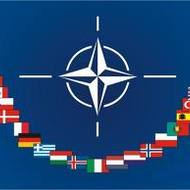Press Release
March 22, 2004
Contact: Senator Douglas Roche, Ottawa, (613) 943-9559 or Zachary Allen, San Francisco, (415) 397-6760.
NATO’s nuclear policies have put Canada in conflict with its goals for the elimination of nuclear weapons, the Middle Powers Initiative (MPI) and the Canadian Pugwash Group (CPG) state in a joint Policy Paper to the Canadian government released today.
Canada should take a leading role to energize the global dialogue on nuclear weapons, work to build bridges in the nuclear debate, and minimize the negative consequences of missile defence deployment, the Policy Paper said.
Following a recent roundtable meeting in Ottawa of 30 invited experts, MPI and CPG produced a Policy Paper for the Canadian government as it prepares for a meeting of the 188 States Parties to the Nuclear Non-Proliferation Treaty (NPT) next month.
“Canada needs urgently to develop a policy response to the profound crisis of the nuclear disarmament agenda,” the two groups said in a letter to Prime Minister Paul Martin signed by Senator Douglas Roche, Chair of the Middle Powers Initiative, and Dr. Adele Buckley, Chair of the Canadian Pugwash Group.
The nuclear crisis exists because of the failure of the Nuclear Weapons States (the U.S., Russia, the U.K., France and China) to honour their commitment to negotiate the elimination of their nuclear arsenals in return for a pledge by the non-nuclear states not to acquire nuclear weapons. Proliferation of nuclear weapons is now occurring as is seen in the attempts by North Korea, Iran and Libya to acquire nuclear weapons. In addition, three states that have refused to sign the Non-Proliferation Treaty, India, Pakistan and Israel, have all acquired nuclear weapons.
NATO is a major impediment to progress, the two groups said, because it continues to insist that nuclear weapons are “essential,” while the Non-Proliferation Treaty parties have made an “unequivocal undertaking” to elimination through a 13-Step program.
“Canada and the other NATO non-nuclear weapons countries should place NATO nuclear policy reform at the tope of their nuclear and disarmament and non-proliferation agenda,” the policy paper stated.
It added that Canada should offer to host an international conference of Heads of State and Government to identify ways to eliminate the nuclear threat. It should also work with like-minded states to develop and advocate common positions to save the NPT.
Further, the two groups urged Canada to decide not to participate in the U.S. missile defence system “because it is not configured in a manner consistent with Canadian disarmament and non-proliferation interests and the prevention of weaponization of space.”
Canada should work for NATO policy reform, stay out of missile defence, and “take up the challenge of building bridges to a nuclear-weapons-free future for Canada and the world,” the report concluded.






